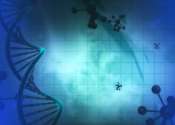Neuroscientists uncover important thinning mechanism that affects how the brain matures in adolescence
What determines how a teenager's brain is structured and how it evolves? In a scientific first, researchers led by Université de Montréal neuroscientist Tomas Paus and postdoctoral fellow Zhijie Liao have established a ...
Nov 1, 2023
0
28




